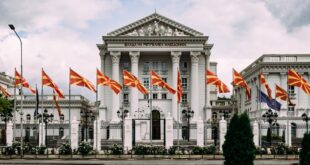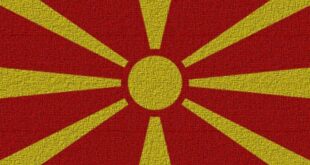The “name” row between Macedonia and Greece could be settled using the recent Croatia-Slovenia model, namely international arbitration, Macedonian Foreign Minister Antonio Milososki said Thursday in Paris.
His remarks came after meeting with Jean-David Levitte, political advisor to French President Nicolas Sarkozy.
Skopje has expressed “interest in the manner in which Slovenia and Croatia negotiated their bilateral dispute. The model enabled both the EU-integration process and the resolution to the bilateral dispute to advance simultaneously and mobilize each other, and allowed for the serious engagement of both countries,” Milososki stated.
Milososki first suggested this idea publicly in November.
After months of fruitless negotiations, Slovenia and Croatia, with the help of the EU, signed an agreement last year allowing an international arbitration team to settle the 18-year long disagreement over the sea and land border between the two countries.
The two have agreed that the ruling will be binding to both countries.
By sending the disagreement to international arbitration, Slovenia also agreed to lift the blockade it had placed on Croatia’s EU accession talks.
Greece has also blocked its smaller neighbor from progressing towards EU and NATO membership pending a change to its formal name, Republic of Macedonia. Athens argues that the name implies Skopje’s territorial claims over its own northern province, also called Macedonia.
The UN-led name talks between the two countries have so far been fruitless. UN mediator Natthew Nimetz is expected to summon both sides to New York soon to resume the negotiations.
Greece expects the United States to use its influence to convince Macedonia to seriously engage in the UN negotiations, Greek Alternate Foreign Minister Dimitris Droutsas told local radio Ano-Kato, Macedonia’s Makfaks news agency reported yesterday.
“If the United States could help convince the political leadership in Skopje to sit at a negotiating table in the United Nations with a constructive approach and contribute to a resolution, that would be a positive development.
“These are the things that were discussed with [US] President Obama,” during the Greek prime minister’s visit to Washington this month, Droutsas said.
He reiterated Greece’s red line – a compound name with a geographic qualifier to be used by all countries. He noted that the ongoing financial turmoil that Athens faces has no influence on Greece’s position on the name issue.
Macedonia has previously expressed fears that a name change and subsequent deals with Greece might affect the smaller country’s identity and pride.
 Eurasia Press & News
Eurasia Press & News



